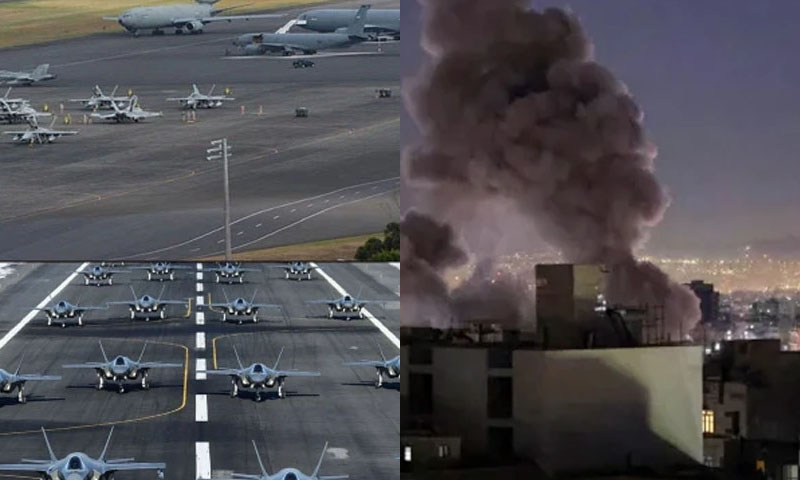- Web
- Yesterday
Indian Air Force admits hitting residential area in MP
-

- Web Desk
- Apr 25, 2025

NEW DELHI: In a shocking display of chaos and apparent desperation, the Indian Air Force dropped Friday a bomb on a residential area in Madhya Pradesh, causing widespread destruction to homes and civilian infrastructure.
The incident occurred in Shivpuri district, leaving several houses destroyed and unconfirmed reports of casualties.
The Indian Air Force took it to X to admit the blunder. “The IAF regrets the damage caused today to property on ground, near Shivpuri, by the inadvertent drop of a non-explosive aerial store from an IAF aircraft, and has instituted an inquiry into the incident,” IAF’s post on X reads.
The IAF regrets the damage caused today to property on ground, near Shivpuri, by the inadvertent drop of a non-explosive aerial store from an IAF aircraft, and has instituted an inquiry into the incident.
— Indian Air Force (@IAF_MCC) April 25, 2025
Defence analysts have slammed the incident as a glaring example of the Indian Air Force’s declining operational discipline and growing internal disarray following the controversial Pahalgam false flag operation.
Experts note that this is not the first time the Indian Air Force has been involved in mishaps involving its own citizens. Past incidents have seen fighter jets crashing into populated areas, raising serious concerns about both pilot training and the handling of sophisticated payloads.
“This repeated failure to control aircraft and weapons systems not only exposes India’s technological shortcomings but also signals poor training standards within its forces,” said one defence analyst.
Pakistan and India border closure separates families
The internal unrest appears to be escalating, with authorities cracking down on dissent. In Assam, Member of Legislative Assembly (MLA) Aminul Islam was arrested after his video questioning the official narrative of the Pahalgam attack went viral on social media. Assam Police registered a suo motu case against him.
In a similar development, a Kashmiri journalist who raised questions about the feasibility of the Pahalgam attack—given the region’s tight security—was detained by Indian forces. The journalist had pointed out that with over 700,000 troops deployed, it was “inconceivable” for such an attack to occur without internal complicity. “I’m stopped at 10 checkpoints just to get to Pahalgam,” he wrote.
Tensions have surged since the April 22 attack in Pahalgam, where 26 tourists were killed. India responded by suspending the Indus Waters Treaty a day later and ordering all Pakistani citizens to leave the country within 48 hours.
It also shut down the Wagah border crossing and recalled its military attaché from Islamabad, while reducing its diplomatic staff in Pakistan.
On Thursday, Pakistan’s National Security Committee (NSC), chaired by Prime Minister Shehbaz Sharif, rejected India’s suspension of the Indus Waters Treaty, warning that any attempt to block Pakistan’s water would be seen as a declaration of war.
The NSC also announced a halt to all trade with India, closure of the Wagah border, a ban on Indian airlines from using Pakistani airspace, and a directive for Indian nationals to leave the country within 48 hours.




